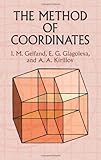For homeschooling, which for other parents on Hacker News could take the form of "afterschooling," I much prefer Miquon Math
http://www.keycurriculum.com/products/supplementals/miquon-m...
for starting out my children, and then the Singapore Primary Mathematics materials (which now have an edition aligned to United States curriculums standards)
http://www.singaporemath.com/Primary_Mathematics_Stds_Ed_s/1...
followed up by the Gelfand textbooks
http://www.amazon.com/Algebra-Israel-M-Gelfand/dp/0817636773
http://www.amazon.com/Method-Coordinates-Dover-Books-Mathema...
http://www.amazon.com/Functions-Graphs-Dover-Books-Mathemati...
http://www.amazon.com/Trigonometry-I-M-Gelfand/dp/0817639144...
appropriately supplemented by ALEKS
and EPGY
http://epgy.stanford.edu/district/info.html
ALEKS
is a commerical online site (in which I have no economic interest) delivering personalized instruction in mathematics through precalculus mathematics. The ALEKS website includes links to research publications on which ALEKS is based.
I also recommend the Art of Problem Solving (AoPS)
http://www.artofproblemsolving.com/
(where I first took on the screenname that I also use here on HN) for more online mathematics instruction resources, and I also share specific links to specialized sites on particular topics with clients and with my children. I should note for onlookers that the articles on mathematics learning on the AoPS website
http://www.artofproblemsolving.com/Resources/articles.php?
are very good indeed, especially "The Calculus Trap."
My children make quite a bit of voluntary use of Khan Academy (both watching videos and working online exercises) and I am gratified that my previous suggestions to the Khan Academy developers here on HN
http://news.ycombinator.com/item?id=2760663
have been followed up as Khan Academy developers have communicated with me by email about new problem formats available in their online exercises, which are becoming increasingly challenging.
Besides that, I fill my house with books about mathematics, and circulate other books about mathematics frequently from various local libraries.
I also recommend that all my students use the American Mathematics Competition
materials and other mathematical contest materials as a reality check on how well they are learning mathematics.
In general, I think mathematics is much too important a subject to be single-sourced from any source. Especially, mathematics is much too important to be left to the United States public school system in its current condition. I was rereading The Teaching Gap: Best Ideas from the World's Teachers for Improving Education in the Classroom (1999) last month. It reminded me of facts I had already learned from other sources, including living overseas for two three-year stays in east Asia.
"Readers who are parents will know that there are differences among American teachers; they might even have fought to move their child from one teacher's class into another teacher's class. Our point is that these differences, which appear so large within our culture, are dwarfed by the gap in general methods of teaching that exist across cultures. We are not talking about gaps in teachers' competence but about a gap in teaching methods." p. x
"When we watched a lesson from another country, we suddenly saw something different. Now we were struck by the similarity among the U.S. lessons and by how different they were from the other country's lesson. When we watched a Japanese lesson, for example, we noticed that the teacher presents a problem to the students without first demonstrating how to solve the problem. We realized that U.S. teachers almost never do this, and now we saw that a feature we hardly noticed before is perhaps one of the most important features of U.S. lessons--that the teacher almost always demonstrates a procedure for solving problems before assigning them to students. This is the value of cross-cultural comparisons. They allow us to detect the underlying commonalities that define particular systems of teaching, commonalities that otherwise hide in the background." p. 77
Plenty of authors, including some who should be better known and mentioned more often by HN participants, have had plenty of thoughtful things to say about ways in which United States mathematical education could improve.
In February 2012, Annie Keeghan wrote a blog post, "Afraid of Your Child's Math Textbook? You Should Be,"
http://open.salon.com/blog/annie_keeghan/2012/02/17/afraid_o....
in which she described the current process publishers follow in the United States to produce new mathematics textbook. Low bids for writing, rushed deadlines, and no one with a strong mathematical background reviewing the books results in school textbooks that are not useful for learning mathematics. Moreover, although all new textbook series in the United States are likely to claim that they "expose" students to the Common Core standards, they are not usually designed carefully to develop mathematical understanding according to any set of standards.
The Epsilon Camp website
http://www.epsiloncamp.org/FAQ.php
also has some useful FAQ files about studying mathematics at a young age.


https://www.amazon.com/Functions-Graphs-Dover-Books-Mathemat...
https://www.amazon.com/Sequences-Combinations-Limits-Dover-M...
https://www.amazon.com/Geometry-Israel-M-Gelfand/dp/10716029...
https://www.amazon.com/Algebra-Israel-M-Gelfand/dp/081763677...
https://www.amazon.com/Trigonometry-I-M-Gelfand/dp/081763914...
https://www.amazon.com/Method-Coordinates-Dover-Books-Mathem...
the books by sanjoy mahajan are also a treat and teach real-world applications of mathematical and scientific thinking.
https://www.amazon.com/Street-Fighting-Mathematics-Educated-...
https://www.amazon.com/Art-Insight-Science-Engineering-Compl...